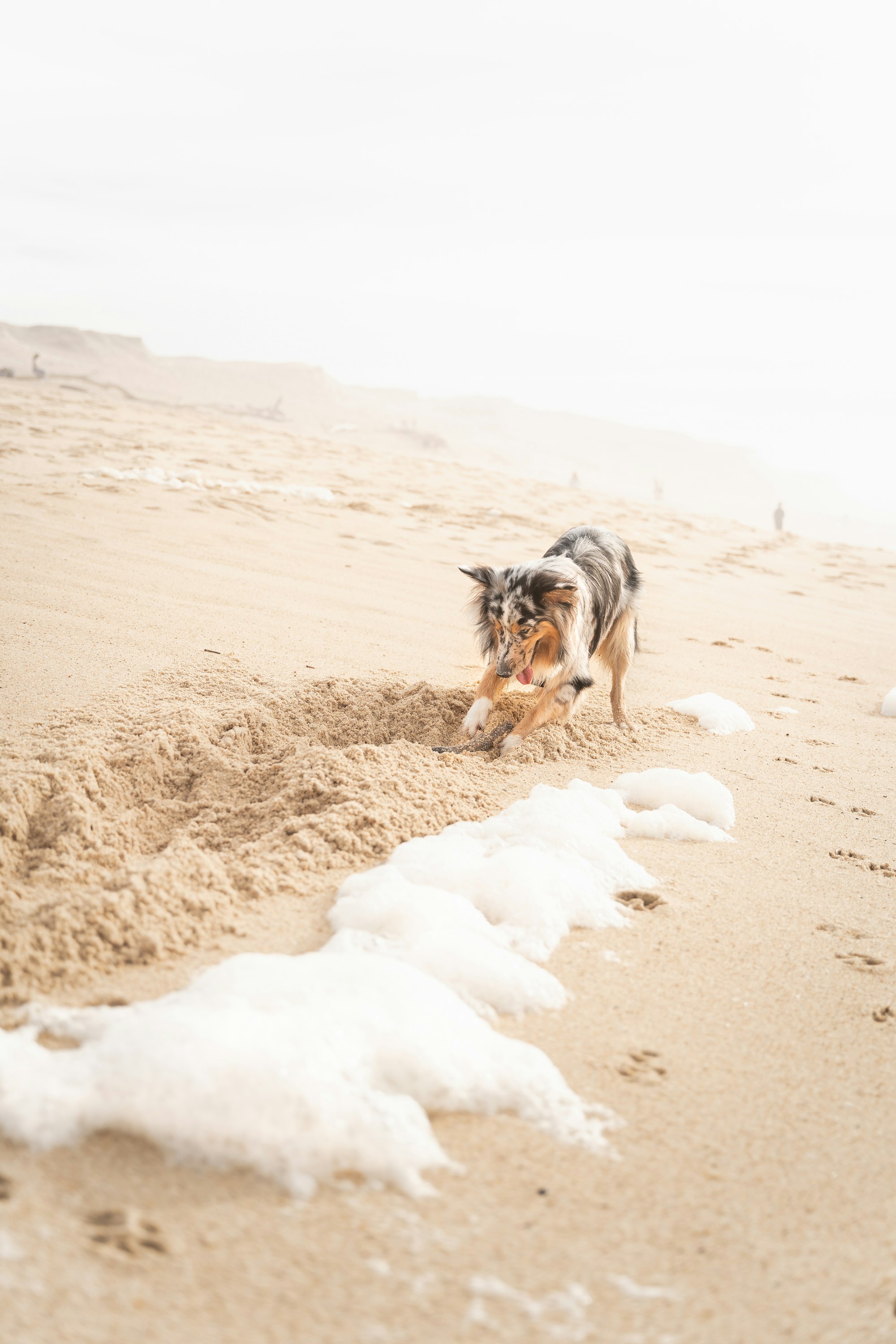We all know that a lot of the time, digging in the backyard seems to be a dog’s favorite activity that keeps them smiling and entertained. It can become a problem however if they have just had a bath and are suddenly covered in grime, if they dig under fences and get out into the street, or if they destroy your yard or garden which was previously looking pristine.
It can be a real headache when we get home from a long day to discover that the yard looks like a battlefield that has been covered in little craters, or that they have dug their way under the fence and escaped.
So why do dogs dig up the place so much and what can we do about it? It is important that we first understand why it is that dogs like digging so much, after which we will cover some effective techniques to get them to stop.

Why Dogs Love to Dig
There really isn’t one single reason why dogs enjoy digging so much, although it can generally be whittled down to the characteristics of their particular breed, ancient behaviors they inherited from their wolf ancestors, wanting to escape, and because it is entertaining when they are bored. They also love to watch what we do, so if your dog sees you digging in the vegetable garden, they may take it as a cue that they can do so as well.

It's In Their Genes - Wolf Ancestors and Digging
A common behavior among wolves that dogs have held onto is digging holes so that they can bury things. When wolves can’t eat something in one go, they will find a place to bury it for later so that other wolves and animals cannot steal it from them. Dogs do this in the same way, although as well as food, they also tend to dig holes for toys and other possessions as a way of safeguarding their stuff.
Being an Escape Artist
Many dogs love to get out and run around outside of the property regardless of if they have permission or not. They may have found a part of the property’s perimeter that they can dig under in order to escape out into the open, and if they think it will work, they will try. If this sounds like your dog, you can click here to learn more about Fi and how it can keep your dog from going on "solo adventures".

Digging for Entertainment
One of the core reasons that dogs dig, however, is because it is fun and something that they can do when they are stressed out or just bored. Rummaging through the dirt, kicking up soil everywhere, and seeing what’s in the ground is stimulating to their senses and because it is a fun activity that relaxes them, they will often do this when they have too much energy, nothing else to do, or are feeling stressed or anxious. Digging can also be an escape from the summer sun, giving them a cool, damp surface to lie on to get more comfortable.
Dog Breeds That Dig The Most
Dog breeds that were specifically bred for hunting are renowned for being passionate and expert diggers. This is because these dogs were bred to be expert hunters who would chase rabbits, foxes, rats, and other animals and a big part of the chase involved digging into the burrows and dens of these animals. While digging is common in most dogs, some breeds are guilty of digging a lot more than others. Some of the most famous diggers include:
- Jack Russell Terriers
- Dachshunds
- Cairn Terriers
- Smooth Fox Terriers
- Airedale Terriers
- Beagles
- Miniature Schnauzers
There are more dogs that have been hard-wired to dig due to the environments that they were bred in, and this is particularly true for working dogs like Border Collies, Siberian Huskies, and Alaskan Malamutes. Because Huskies and Malamutes come from cold environments where they needed to dig in order to create burrows that protected them from cold weather, even when they are taken to warmer climates, they still feel the need to do so. Border Collies on the other hand have so much energy and need to be occupied a lot of the time, otherwise they may turn to digging out of boredom and anxiety.

How to Get Your Dog to Stop Digging
How you approach this is going to depend on the reason why your dog is digging in the first place because when you understand their reasoning, you will be able to help them with whatever it is they are trying to do.
For hunting dogs, you can tell that they are following an animal underground when they only focus on one single area, dig at the roots of trees and shrubs, or follow a specific, linear path with their digging. This means that they are trying to get to their prey. In this case, you will need to search for evidence of wildlife, humanely get rid of them, or find a way to make your property unappealing to them so they leave.
Escape artists trying to get out to see other dogs, to explore, or to get out of their current environment are going to keep trying until something changes. For example, if they are trying to run away from something, like young kids who pull their fur and annoy them, then you will need to address that issue with the kids so that the dog can live happily on the property. Also consider how to dog-proof your perimeter - placing large rocks in places where they dig or putting chicken wire along the bottom of the fence and into the ground so that they simply cannot get out. Training to modify your dog’s behavior can also be effective in these instances.

Bored or anxious dogs that need something to do are often the ones who are left in the yard for long periods of time without interaction, have no entertaining toys or playmates, or simply need another outlet for their energy if they are natural diggers or energetic pups. Make sure that they are getting enough exercise each day to tire them out, give them a range of exciting toys like balls and frisbees which allow them to run around, and give them enough attention and engagement each day.
If they are committed to their art of digging, then section off a part of your yard where they are in fact allowed to dig until their heart is content and teach them with praise and firm communication that while they can’t dig elsewhere, they certainly can there. You can even bury treats in their digging zone to encourage them to focus on that area. Another solution here is to purchase a sandbox just for your pup! This will save your yard, and keep them a little less dirty.
If you are unable to prevent them from ruining the entire yard or sticking to their digging area, you may need to consult with a behavior expert for more advice.